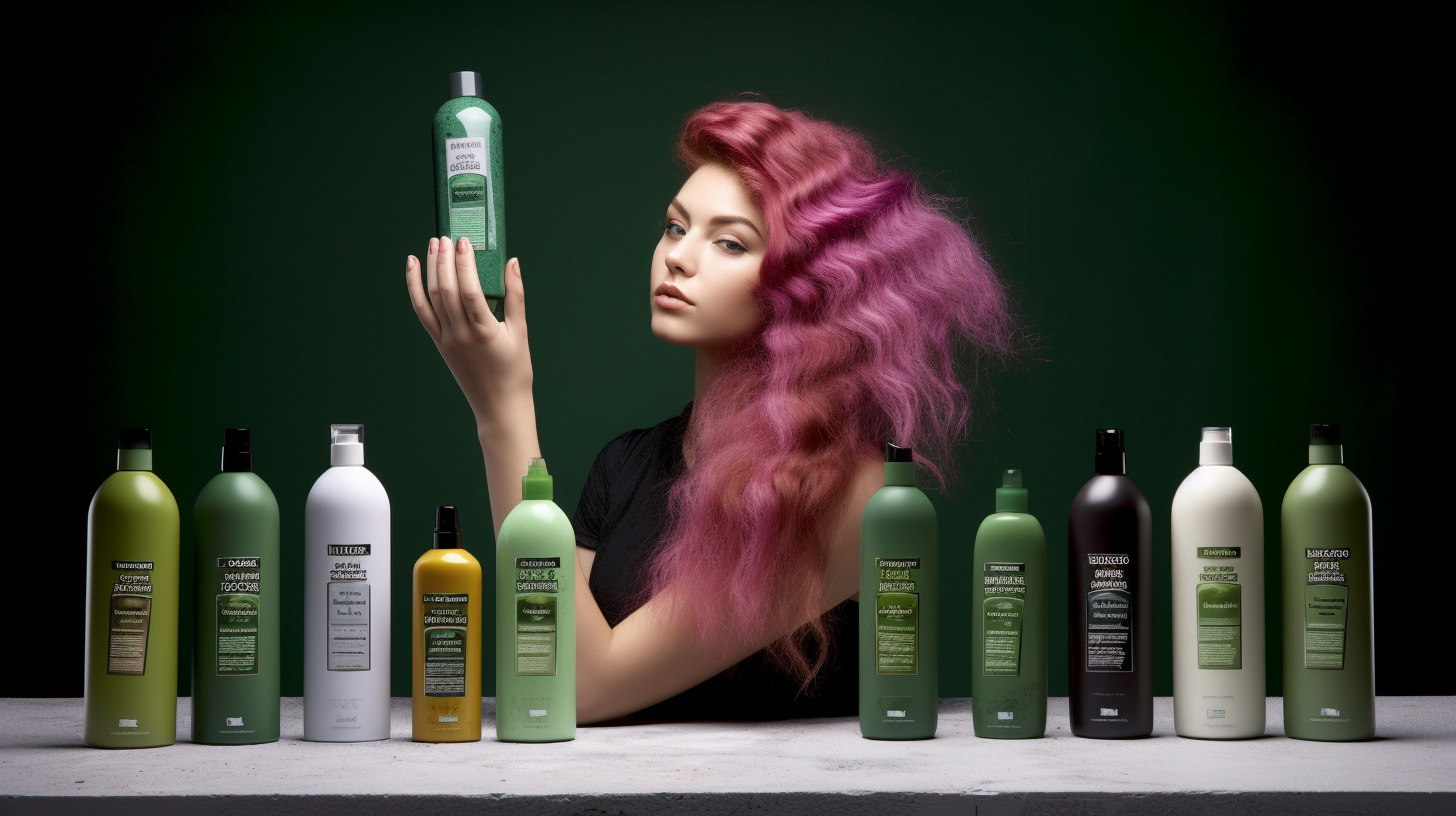When it comes to choosing the right shampoo for your hair and scalp, the decision can be quite overwhelming. With a multitude of options available in the market, it’s important to make an informed choice. In this article, we will explore the key differences between herbal and chemical shampoos, helping you decide which one is best for your unique hair and scalp needs.
Understanding Herbal Shampoos
Herbal shampoos are crafted from natural plant extracts, herbs, and essential oils. These ingredients are known for their therapeutic properties and have been used for centuries to promote hair health. Here are some key advantages of using herbal shampoos:
Natural Ingredients
Herbal shampoos typically contain ingredients like aloe vera, tea tree oil, chamomile, and lavender. These natural ingredients are gentle on the scalp and hair, reducing the risk of irritation or allergies.
Nourishing and Strengthening
Herbal shampoos are rich in vitamins, antioxidants, and minerals that can help nourish and strengthen your hair from the roots to the tips. This can lead to improved hair texture and reduced breakage.
Sulfate-Free
Most herbal shampoos are sulfate-free, which means they do not contain harsh detergents that can strip your hair of its natural oils. This makes them suitable for people with sensitive scalps.
The Chemistry Behind Chemical Shampoos
Chemical shampoos, on the other hand, are formulated with synthetic ingredients and detergents. While they may offer a quick fix for various hair issues, they come with some potential downsides:
Harsh Ingredients
Chemical shampoos often contain sulfates, parabens, and other harsh chemicals that can strip your hair of its natural oils. This can lead to dryness, frizz, and even damage in the long run.
Short-Term Results
Chemical shampoos may provide immediate results, such as smoothness and shine, but these effects can be temporary and may not address the underlying issues your hair and scalp face.
Consider Your Hair Type
To determine whether herbal or chemical shampoo is best for you, consider your hair type and specific needs. Here are some guidelines:
Oily Scalp and Hair
If you have an oily scalp and hair, herbal shampoos with ingredients like tea tree oil or citrus extracts can help regulate oil production and keep your hair feeling fresh.
Dry and Damaged Hair
For dry and damaged hair, herbal shampoos with hydrating ingredients like aloe vera and coconut oil can provide the moisture your hair needs to regain its vitality.
Sensitive Scalp
If you have a sensitive scalp, herbal shampoos are generally a safer choice as they are less likely to cause irritation or allergic reactions.
The Importance of Reading Labels
Regardless of whether you choose a herbal or chemical shampoo, it’s crucial to read the product labels. Look for shampoos that are free from harmful additives and contain ingredients that cater to your hair’s unique requirements.
Finding the Balance
In some cases, finding the right shampoo may require a balance between herbal and chemical options. You can opt for a herbal shampoo for regular use and a chemical one for occasional deep cleansing or specific hair concerns.
which one is better for scalp eczema?
When dealing with scalp eczema, it’s generally recommended to opt for a gentle, moisturizing shampoo that is specifically designed for sensitive or eczema-prone skin. Both herbal and chemical shampoos can be effective, depending on the formulation and ingredients used. Here are some considerations to help you decide which type of shampoo may be better for managing scalp eczema:


Herbal Shampoo for Scalp Eczema:
Natural Ingredients: Herbal shampoos often contain natural ingredients like aloe vera, chamomile, calendula, and tea tree oil. These ingredients can have soothing and anti-inflammatory properties that may help alleviate scalp eczema symptoms.
Less Harsh: Herbal shampoos are generally milder and less likely to contain harsh detergents or chemicals that can irritate sensitive skin.
Moisturizing: Many herbal shampoos contain moisturizing ingredients that can help hydrate and soothe the scalp, which is beneficial for eczema-prone skin.
Fewer Allergens: Some individuals with eczema may have allergies to certain synthetic chemicals found in chemical shampoos. Herbal shampoos, being more natural, may have fewer potential allergens.
Chemical Shampoo for Scalp Eczema:
Medicated Formulations: Some chemical shampoos are specifically formulated to treat scalp conditions like eczema. These may contain active ingredients like ketoconazole or coal tar, which can help manage symptoms such as itching and inflammation.
Prescribed by a Dermatologist: In severe cases of scalp eczema, a dermatologist may recommend a medicated shampoo that contains specific ingredients tailored to your condition.
Fast Relief: Chemical shampoos with medicated formulas can provide quicker relief from symptoms compared to some herbal shampoos.
Ultimately, the choice between herbal and chemical shampoos for scalp eczema will depend on your personal preferences, the severity of your condition, and how your skin responds to different ingredients. It’s important to consult with a dermatologist or healthcare provider for a proper diagnosis and personalized recommendations.
Additionally, regardless of the type of shampoo you choose, it’s essential to:
Patch Test: Before using any new shampoo, perform a patch test on a small area of your scalp to check for any adverse reactions or allergies.
Avoid Triggers: Identify and avoid triggers that may worsen your scalp eczema, such as certain hair products, stress, or exposure to extreme temperatures.
Maintain a Good Scalp Care Routine: Gently cleanse your scalp and hair regularly, but avoid excessive washing as it can strip natural oils and worsen eczema symptoms. Use lukewarm water and be gentle when washing your hair.
Moisturize: After washing, apply a hypoallergenic and fragrance-free moisturizer or scalp treatment recommended by your dermatologist to keep your scalp hydrated.
In conclusion, the choice between herbal and chemical shampoos for scalp eczema depends on your individual preferences and skin sensitivity. Consultation with a healthcare provider or dermatologist is crucial to determine the most suitable treatment approach for your specific condition.
Which One Is Best for You?
In the herbal vs. chemical shampoo debate, there’s no one-size-fits-all answer. The choice ultimately depends on your hair type, scalp condition, and personal preferences. If you prioritize natural ingredients and want to avoid harsh chemicals, herbal shampoos may be the better choice. However, if you’re looking for quick fixes or specific treatments, chemical shampoos can have their merits.
Remember that consistency is key to maintaining healthy hair, so choose a shampoo that suits your needs and stick to a routine that works for you. Whether you go herbal, chemical, or a combination of both, your hair and scalp’s health should always be your top priority.
In conclusion, the best shampoo for your scalp and hair shaft is the one that aligns with your individual needs and preferences. By understanding the benefits and drawbacks of both herbal and chemical shampoos, you can make an informed choice that leaves your hair looking its best.
FAQ
What is the best way to prevent sunburn?
Wear sunscreen with SPF, protective clothing, and sunglasses when outdoors.
How often should I change my car’s engine oil?
Typically every 3,000 to 5,000 miles, but check your vehicle’s manual for specific recommendations.
What’s the recommended daily water intake?
About 8 cups (64 ounces) or more depending on factors like activity level and climate.
How can I improve my sleep quality?
Maintain a consistent sleep schedule, create a comfortable sleep environment, and limit screen time before bed.

